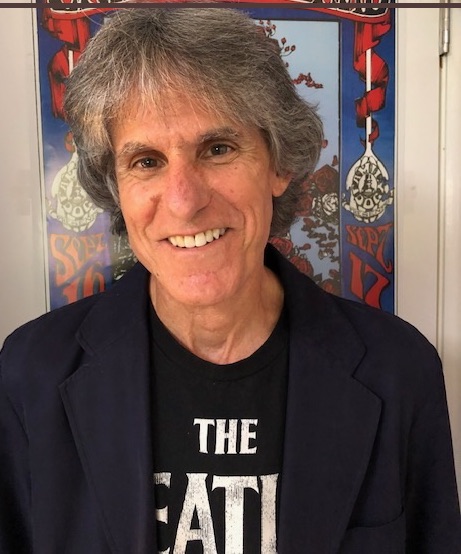Ripples
Ripples
Stories by Brian Conroy

Ripples is a collection of 13 wisdom stories with musical accompaniment told by Buddhist storyteller, Brian Conroy. All of the tales included in the Ripples collection are rhythmic stories, written in rhyming verse, and accompanied by music.
Download the story album
Ripples album is available for as a gift to you when you share a story of your Act of Kindness through Good Karma Music
Notes and lyrics of the songs
This tale is adapted from the Japanese folktale, The Stonecutter. The main character, dissatisfied with his life and lack of power, seeks to be someone else. The story illustrates that desire only engenders more desire, and teaches us to embrace our original natures. The opening sung verse is from the song A Satisfied Mind by Joe Hayes and Jack Rhodes.
Brian wrote this story for a storytelling performance in 2012. Monkey and the Mangoes became the template for this collection of rhythmic stories.
I came across this story in a collection of wisdom tales by Swami Satchidananda entitled Enlightening Tales. My good friend Bob Jenkins used to tell a version of this tale called The Man Who Wanted to Do Incredible Things. To me, the curly hair is a metaphor for the work of cultivation or spiritual practice
The Ripples story began with the musical chorus that serves as a bridge between the short stories. The inspiration came initially from my participation in the Service Space community that believes strongly in the chain reaction phenomenon known as the “ripple effect.” In 1999 I wrote a story on a similar theme called A Snail on the Sidewalk. I told the story a couple times and forgot all about it. One morning during a running workout session, I observed my dear friend Melissa Sudan picking up worms on the track so that runners wouldn’t step on them. Her compassionate actions reminded me of the earlier tale and evolved into the first section of Ripples.
This sweet, short story is adapted from the original found in the Recorded Sayings of Layman Pang. I changed the ending slightly to make it more accessible.
Tales of Mulla Nasrudin are well-loved in the Sufi tradition. The story reminds us to stay grounded in practical concerns and points out the difference between knowledge and wisdom.
In 1977 Brian performed in a play called Black Tooth Mountain written and directed by Bob Jenkins. A version of this tale was used in the play to express an anti-war message.
Brian found this story in a collection called Stories to Solve. The stories in the book end with a question posed by the storyteller to the listeners, asking them to “solve” the stories by guessing the endings. Brian began telling this story to young people and asking them at the end what they thought filled up the room. Over the years Brian had many reasonable responses, so he decided to allow each listener to decide for herself. In the original story from Ethiopian entitled, The Cleverest Son, all three of the farmer’s children were male. Brian preferred to have a wise female be the one who fills up the farmer’s room.
This story about karma was told by the Venerable Master Hsuan Hua using a wealth of colloqualisms and modern slang. It can be found in Volume 1 of his commentary on the Dharma Flower Sutra.
The tale of Prince Dighavu and the murder of his father King Dighiti is Jataka 371: Dighitikosala Jataka. It can also be found in the Vinaya. The tale teaches us that violence only leads to more violence and that revenge never solves problems. Brian borrowed the image of burying the sword from the well-known expression as a means of updating the tale for modern understanding.
This is another tale from the collection mentioned above by Swami Satchidananda. We always search outside, but happiness is hidden in our hearts!
This tale from Central Africa encourages us to look beyond our own limited perspectives and see both sides of an issue.
About the artist Brian Conroy

Brian Conroy is the founder of the Buddhist Storytelling Circle, a group of storytellers from the Berkeley Buddhist Monastery who perform at interfaith and Buddhist gatherings. For thirty-five years Brian taught theater and public speaking in the public schools in San Jose. He received his M.A. in Folklore from San Jose State University, where he taught storytelling for ten years. As a storyteller Brian has performed at festivals and conferences including the National Storytelling Festival, The Parliament for the World’s Religions, and The Buddhist Storytelling Festival. Brian first encountered Venerable Master Hsuan Hua in 1976 and took refuge with the Master in 1994. He is the author of Stepping Stones, a collection of Buddhist parables, and Prince Dighavu an adaptation of a traditional wisdom tale.
Production
Produced and Engineered by Alakh Kapadia
Artwork and Design: Streetlight Graphics, London, Kentucky
Musicians
Banjo, Resonator Guitar: Reverend Heng Sure
Soprano Saxophone: Bill Murphy
Harmonium: Dinesh Mehta
Flute: Brinda Govindan
Djembe: Alakh Kapadia
Guitar, Ukelele, Steel Drum: Brian Conroy